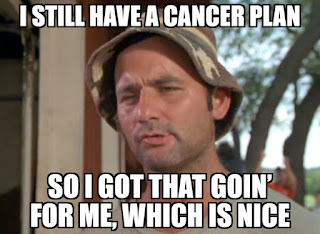As they say, nothing is certain but death and taxes. And as your tax rate may be able to go up and down, there isn't much you can do about your death. But you can make it a lot easier for those you leave behind if you have your affairs in order ahead of time. Depending on your situation, you can take care of some or all of these items early on and it doesn't have to cost you a fortune.
The basics of taking care of things before you go to your eternal reward are not too complicated. Ask yourself the following questions.
- Do I want a funeral? If so...
- Do I want to my family to have to pay for my funeral?
- Do I have any assets that need to be transferred at my death? For example, a home, business, collections, etc.
- Do I want anyone to be excluded from those assets?
Years ago my mother passed away. She had a small collection of jewelry that included a few rings and broaches. I discussed this with my father and suggested he distribute the jewelry as he wished while he was still alive to hear "thank you" from the recipients. But I had ulterior motives as well. I didn't want to be the one having to figure out which family members would get what.
My father never followed through. At his passing the jewelry just got distributed, and I'm pretty sure that some family members were overlooked while others received small items that were intended for others.
With this in mind, here's a short list of things you should take care of before you die.- Buy life insurance*. Sounds obvious, but making sure your family can pay for your final expenses is very important. When you die, people will have their hands out asking for money, like the funeral director and the lawyer. The only one bringing you money will be the insurance agent. Make sure your beneficiaries are up-to-date and keep in mind that you can "assign" part of the proceeds to the funeral home.
- Pre-plan/Pre-pay for your funeral. My father went to the funeral home and picked out his casket in advance as well as other items on his "final wish list". He failed to pay for any of it, leaving my sister and I to front the money until we received the life insurance proceeds.
- Have a will. This keeps your estate from ending up in probate, which can be costly and puts your estate at the mercy of a judge. A will can alleviate any disagreements between family members as to who will receive proceeds and how much. For instance, if you own a business and one child actively works there while another child does not, you can put directives in the will that address the issue.
- Have a living will. Again, you can alleviate a lot of tension in the family by making decisions ahead of time when you are lucid.
Nowadays, people have extended families, businesses, investments and other obligations that are hard to untangle if someone were to die unexpectedly. Letting attorneys and courts make those decisions can be costly and unproductive. Make sure your intentions are known and your loved ones will remember you fondly.
If you have questions or comments, please let us. In the meantime, stay healthy!
*Life insurance trumps a will since it is a legally binding contract.
Chris Castanes is the president of Surf Financial Brokers, helping people find affordable life and disability insurance coverage. He's also is a professional speaker helping sales people be more productive and efficient and has spoken to professional and civic organizations throughout the Southeast. And please subscribe to this blog! Thanks!









